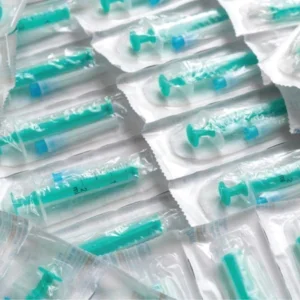Clinical trials are becoming more complex and the process of bringing together all of the elements to conduct a successful trial is as demanding as the science that creates innovative drug therapies. One of the biggest challenges faced by companies sponsoring clinical trials is sourcing comparator drugs, but new guidance from the International Society for Pharmaceutical Engineering (ISPE) aims to create a solution.
The ‘ISPE Good Practice Guide: Comparator Management’ is the industry’s first resource of strategic and tactical considerations for the sourcing and procuring of comparator drugs for use in a clinical trial. The best practices it describes could create significant savings of time and money, as any mistake or delay in this process may cost a sponsor company millions of dollars.
As well as outlining the risks inherent in ineffective sourcing methods for comparators, the ISPE guidelines provide clear strategies for avoiding the costs, delays and potential case study inaccuracies that could arise from poor comparator management.
"Comparators are crucial, especially these days," says Steven Jacobs, chairman of the Global Clinical Supplies Group (GCSG). "The industry has evolved quickly. About 20 years ago, people pushed for placebo-controlled studies, but after the Helsinki declaration on ethical principles for medical research, it was decided not to give people with an illness a placebo but to compare new drugs with what was already on the market. The results are more useful, but it raises many challenges with sourcing.
"Add to that the fact that, with the 2004 Clinical Trials Directive, the industry realised that it could not source comparators in one country and ship them all over the world, but should source the drugs in the region where the trial was being done. So, the importance of sourcing comparators has gone through the roof."
Clinical supply chain: chief concerns
Jacobs knows the challenges well through his involvement with the GCSG, a forum that encourages open discussion and the sharing of best practices for the clinical supply chain. Within this forum, the efficient sourcing of comparators is a hot topic. The chief concern is how to get enough of the market-leading drugs to complete a successful trial of a new alternative. Yet, there are also many issues around distribution, regulatory approval and expiry dates.
Stocking up on sufficient supplies to complete a long-running trial, ensuring that those drugs have sufficiently long expiry dates, and scheduling the supply and distribution of comparators to coincide with all other factors – including clearance from regulatory authorities – falling into place to confirm a timescale for the trial can be a burdensome task. The primary sticking point is that companies with a drug on the market may not be enthusiastic about providing it in large quantities to a competitor working on a new drug that could replace it. No company is keen to give up market share that costs untold amounts of money to build up. Supplies of comparator drugs can easily become very tight.
"Getting enough is very hard," says Jacobs. "There are also issues for companies not only here in the US, but also elsewhere around the world, as regulatory authorities look at quality and good manufacturing processes. They have shut down some processing companies, which is part of the reason why there is now a massive shortage of oncology medications both as treatments and comparators."
Plan ahead to source comparators
The problems that arise when sourcing comparators are compounded by the growing complexity of the clinical supply chain.
"The trend is to outsource whole groups in clinical supplies, so more vendors are used to solve the problems that sponsor companies have," explains Jacobs. "Companies have many silos, so there are issues with collaboration, which make it hard to deliver on time. There is more delay as more partners are involved. If a vendor is not given enough time to source comparators, then it will go to the open market, and it will become clear to a company marketing leading drugs that a trial is under way by a competitor."
Jacobs believes that sponsor companies need to think about sourcing drugs early. Comparators can be a huge and competitive business, so the challenge is to build the right relationships so that sponsor companies can get a product without alerting the OEM producing the drugs, which may not want them used in a trial that challenges those drugs in the marketplace.
"You don’t want sponsor companies going to the open market," he adds. "Confidentiality is essential, so you need comparator vendors to exercise discretion and subtlety in sourcing drugs."
Sourcing in the right quantity of a drug is one problem, but the need to find supplies of that drug that have the necessary expiry date compound the issue.
"Companies running clinical trials need to ensure that they get comparators with the longest possible expiry dates," says Jacobs. "Because of poor planning, communication and difficulties with supply, clinical drugs can be finished and awaiting shipment for quite some time while expiry dates quickly tick down. Any delay to a clinical trial, perhaps because of issues with customs, import licences or obtaining regulatory approval, can cause big problems."
Need for greater collaboration along the supply chain
For Jacobs, the solution to this problem is two-fold: better planning by sponsor companies and greater collaboration, between clinical supplies and clinical operations, and between sponsor companies and their comparator vendors. There have been suggestions that the industry should get behind a comparator consortium, though for obvious reasons this has rarely been well received by comparator vendors.
"If big pharmaceutical companies share drugs, then that is bad news for those vendors," he says. "That said, even if the business decision-makers backed such an idea, it is highly unlikely that the lawyers would ever. But working better together would benefit big pharmaceutical companies. It would require mutual understanding and the sharing of drugs, but not all companies are keen on that kind of contractual agreement. It seems fine when you want a comparator to conduct your own clinical trial, but it may not seem so appealing when it is your turn to provide your drugs to a competitor. If internal silos persist and there continues to be a lack of communication, then it is likely to remain an intractable problem."
Jacobs believes part of the problem is the battle that exists between people that have different thinking styles – the left brain person vs the right brain person (references are Herrmann International’s work on brain styles and Daniel H Pink’s A Whole New Mind: Why Right-Brainers Will Rule the Future). The left brainer is fact-oriented, risk-averse, fears failure and prefers the status quo to an unknown future. Meanwhile, the right-brain person is bursting with creativity and innovation, wants to try new things and has a more relaxed attitude towards risk. It is a conflict between the familiar and the unknown; between stasis and dynamism.
"The industry is a massive left-brain pool, afraid of trying new ideas that might not have a clear ROI, that lack the ability to make a paradigm shift to a new, more collaborative way of working," explains Jacobs. "There are right-brain futurists pointing the way, but they rarely win out. Do I see a big change happening soon in the comparators industry? Not soon."
Nevertheless, Jacobs does see some light at the end of the tunnel. He is already working with companies to help them become more collaborative in their approach. Most often it is the mid-sized pharmaceutical companies that are exploring these new ways of working, as they are more flexible and dynamic in their approach to remaining competitive.
Larger companies, he believes, are locked into their existing paradigm. He likens them to aircraft carriers, which when they receive an instruction to change course, are so large that they have to continue on their present course for a mile before the turn can even be seen.
"Some mid-sized companies have great relationships with vendors because they don’t treat them as slaves," explains Jacobs. "They are not always pressing them to be cheaper. The first step for big companies is to admit that there is a problem, but they have to overcome their entrenched culture. There is little that one set of guidelines, such as those produced by ISPE, can do on its own, even though it embodies very good ideas. Companies may be slow to respond, though I expect mid-sized companies to react the fastest."
New guidelines may tip the balance
While the problem of efficiently sourcing comparator drugs is certainly not a new one, it is becoming more expensive and complex to solve. The industry has wrestled with the issue for many years, and it is unlikely that the difficulties will be removed in a single stroke.
The ISPE white paper on comparator management may not, according to Jacobs, be enough to solve the problem quickly. He believes that it is not necessarily coming up with new ideas, though it is a useful resource to capture and define the ideas that have already been voiced within the industry about planning and collaboration. Yet, as a document that embodies best practices in the comparator industry, the ISPE guide lends weight to the argument that things need to change.
"We are dealing with simple concepts, but most companies still have not taken them on board," says Jacobs. "So, the guidelines may not have a dramatic impact, but they could help to tip the scales eventually. What will really help is the activity by mid-sized companies. The more they do something, the more momentum builds for larger companies to do it. The industry will change, but the big question is how long it will take. I hope that change will happen in one year, but pragmatically it may take five years or more."
Right time for change
The ongoing pressure on the global economy does not help to create the right environment for change, as it may encourage larger companies to stick to what they know. If economic conditions start to show signs of improvement, however, then this could perhaps prompt biotechnology and pharmaceutical companies to feel they have more room to alter their policies and practices in areas like comparator management. Then, perhaps, the industry will see more transparent relationships with vendors and be more willing to look at other collaborative ways of working.
For now, the impetus is mainly from organisations like ISPE and from mid-sized pharmaceutical companies that can take on the role of intrepid pioneers and discover new ways of collaborating with vendors. Their ability to take a fresh approach gives them the power to build a new model and prove its effectiveness. At some point in the future, this model, which is based on the kind of best practices that ISPE has captured, could also be adopted by pharmaceutical majors.





